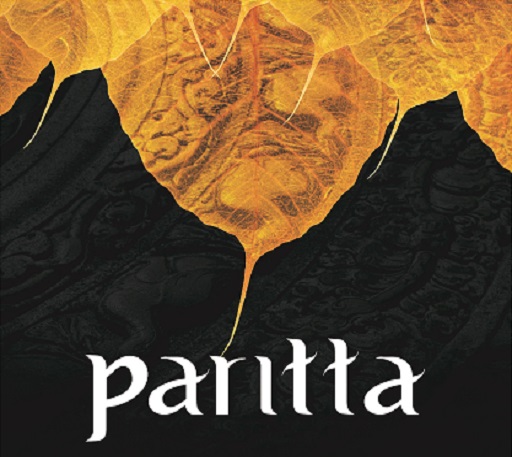No. 321.
KUṬIDŪSAKA-JĀTAKA.
[71] “Monkey, in feet,” etc.—This was a story told by the Master while dwelling at Jetavana, about a young disciple who burnt down the hut of leaves of the elder Mahākassapa. The incident that led to the story originated in Rājagaha. At that time, they say, the elder was living in a cell in the forest near Rājagaha. Two young novices ministered to his wants. The one of them was serviceable to the elder, the other was ill-behaved. Whatever was done by his comrade, he makes as if it were done by himself. For instance, when the other lad had placed water to rinse the mouth, he goes to the elder and saluting him, says, “Sir, the water is ready. Please to rinse your mouth.” And when his companion had risen betimes and swept out the elder’s cell, as soon as the elder appears, he knocks things about hither and thither, and makes as if the whole cell had been swept out by himself.
The dutiful disciple thought, “This ill-behaved fellow claims whatever I do just as if he had done it himself. I will expose his cunning behaviour.” So when the young rogue had returned from the village and was sleeping after his meal, he heated water for the bath, and hid it in a back room, and then put merely a small quantity of water in the boiler. The other lad on waking went and saw the steam rising up and thought, “No doubt our friend has heated the water and put it in the bath-room.” So going to the elder he said, “Sir, the water is in the bath-room. Please, take your bath.” The elder went with him to take a bath, and finding no water in the bath-room asked where the water was. The lad went hastily to the heating chamber and let down a ladle into the empty boiler. The ladle struck against the bottom of the empty vessel, and gave forth a rattling sound. (Thenceforth the boy was known by the name of “Rattle-Ladle.”) At this moment the other lad fetched the water from the back room, and said, “Sir, please take your bath.” The elder had his bath, [72] and being now aware of Rattle-Ladle’s misconduct, when the boy came in the evening to wait upon him, he reproached him and said, “When one that is under religious vows
p. 48
has done a thing himself, then only has he the right to say, “I did that.” Otherwise it is a deliberate lie. Henceforth be not guilty of conduct like this.”
The boy was wroth with the elder, and next day refused to go into the town with him to beg for alms. But the other youth accompanied the elder. And Rattle-Ladle went to see a family of the elder’s retainers. When they inquired where the elder was, he answered that he remained at home ill. They asked what he ought to have. He said, “Give me so and so,” and took it and went to a place that he fancied, and ate it and returned to the hermitage. Next day the elder visited that family and sat down with them. The people said, “You are not well, are you? Yesterday, they say, you stopped at home in your cell. We sent you some food by the hand of such and such a lad. Did your Reverence partake of it?” The elder held his peace, and when he had finished his meal, returned to the monastery.
In the evening when the boy came to wait upon him, the elder addressed him thus: “You went begging, Sir, in such and such a family, and in such and such a village. And you begged, saying, “The elder must have so and so to eat.” And then, they say, you ate it yourself. Such begging is highly improper. See that you are not guilty of such misconduct again.”
So the boy for ever so long nursed a grudge against the elder, thinking, “Yesterday merely on account of a little water he picked a quarrel with me. And now being indignant because of my having eaten a handful of rice in the house of his retainers, he quarrels with me again. I will find out the right way to deal with him.” And next day, when the elder had gone into the city for alms, he took a hammer and broke all the vessels used for food, and setting fire to the hut of leaves, took to his heels. While still alive he became a preta in the world of men, and withered away till he died and was born again in the Great Hell of Avīci. And the fame of his evil deed spread abroad amongst the people.
So one day some Brethren came from Rājagaha to Sāvatthi, and after putting away their bowls and robes in the Common Room they went and saluting the Master sat down. The Master conversed pleasantly with them and asked whence they had come. “From Rājagaha, Sir.” “Who is the teacher that preaches there?” he said. “The Great Kassapa, Sir.” “Is Kassapa quite well, Brethren?” he asked. “Yes, Reverend Sir, the elder is well. But a youthful member of the fraternity was so angry on account of a reproof he gave him, that he set fire to the elder’s hut of leaves, and made off.” [73] The Master, on hearing this, said, “Brethren, solitude is better for Kassapa than keeping company with a fool like this.” And so saying he repeated a stanza in the Dhammapada:
To travel with the vulgar herd refuse,
And fellowship with foolish folk eschew;
Thy peer or better for a comrade choose
Or else in solitude thy way pursue.
Moreover he again addressed the Brethren and said, “Not now only, Brethren, did this youth destroy the hut and feel wroth with one that reproved him. In former times too he was wroth.” And he then told them a legend of the past.
Once upon a time when Brahmadatta reigned in Benares, the Bodhisatta came to life as a young siṅgila bird. And when he grew to be a big bird, he settled in the Himālaya country and built him a nest to his fancy, that was proof against the rain. Then a certain monkey in the rainy season, when the rain fell without intermission, sat near the Bodhisatta, his teeth chattering by reason of the severe cold. The Bodhisatta, seeing him thus distressed, fell to talking with him, and uttered the first stanza:
p. 49
Monkey, in feet and hands and face
So like the human form,
Why buildest thou no dwelling-place,
To hide thee from the storm?
The monkey, on hearing this, replied with a second stanza:
In feet and hands and face, O bird,
Though close to man allied,
Wisdom, chief boon on him conferred,
To me has been denied.
The Bodhisatta, on hearing this, repeated yet two more couplets:
He that inconstancy betrays, a light and fickle mind,
Unstable proved in all his ways, no happiness may find.
[74] Monkey, in virtue to excel, do thou thy utmost strive,
And safe from wintry blast to dwell, go, hut of leaves contrive.
Thought the monkey, “This creature, through dwelling in a place that is sheltered from the rain, despises me. I will not suffer him to rest quietly in this nest.” Accordingly, in his eagerness to catch the Bodhisatta, he made a spring upon him. But the Bodhisatta flew up into the air, and winged his way elsewhere. And the monkey, after smashing up and destroying his nest, betook himself off.
The Master, having ended his lesson, identified the Birth:—”At that time the youth that fired the hut was the monkey, and I myself was the siṅgila bird.”

![[PDF] The book of the Discipline – Vinayapiṭaka – The full 6 Volumes](https://en.namo84000.org/wp-content/uploads/2023/12/The-Book-of-the-Discipline-Vinaya-Pitaka.jpg)


![[En] Guide to Tipitaka](https://en.namo84000.org/wp-content/uploads/2021/10/Kinh-Phat-Quan-trong-2.jpg)